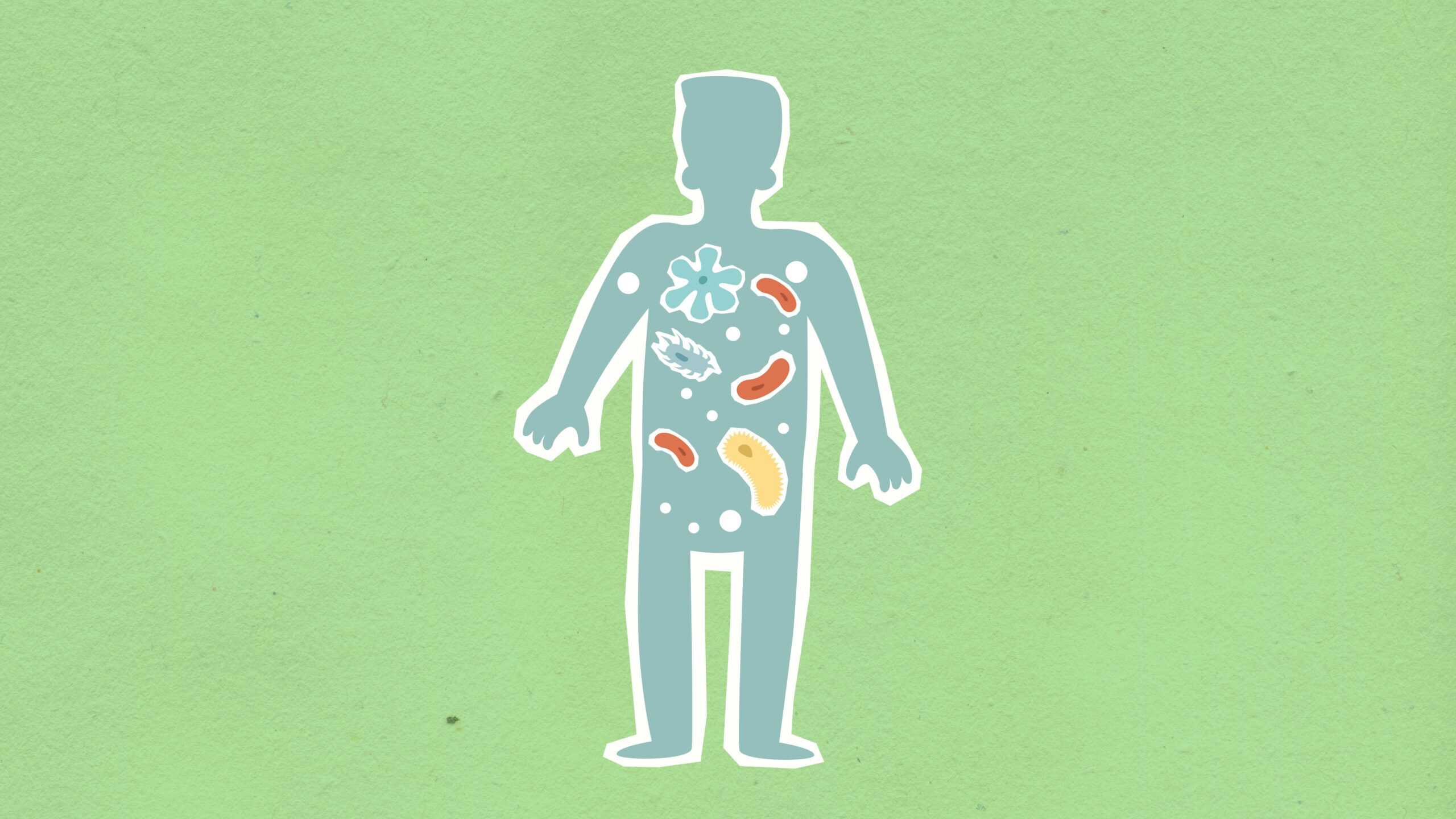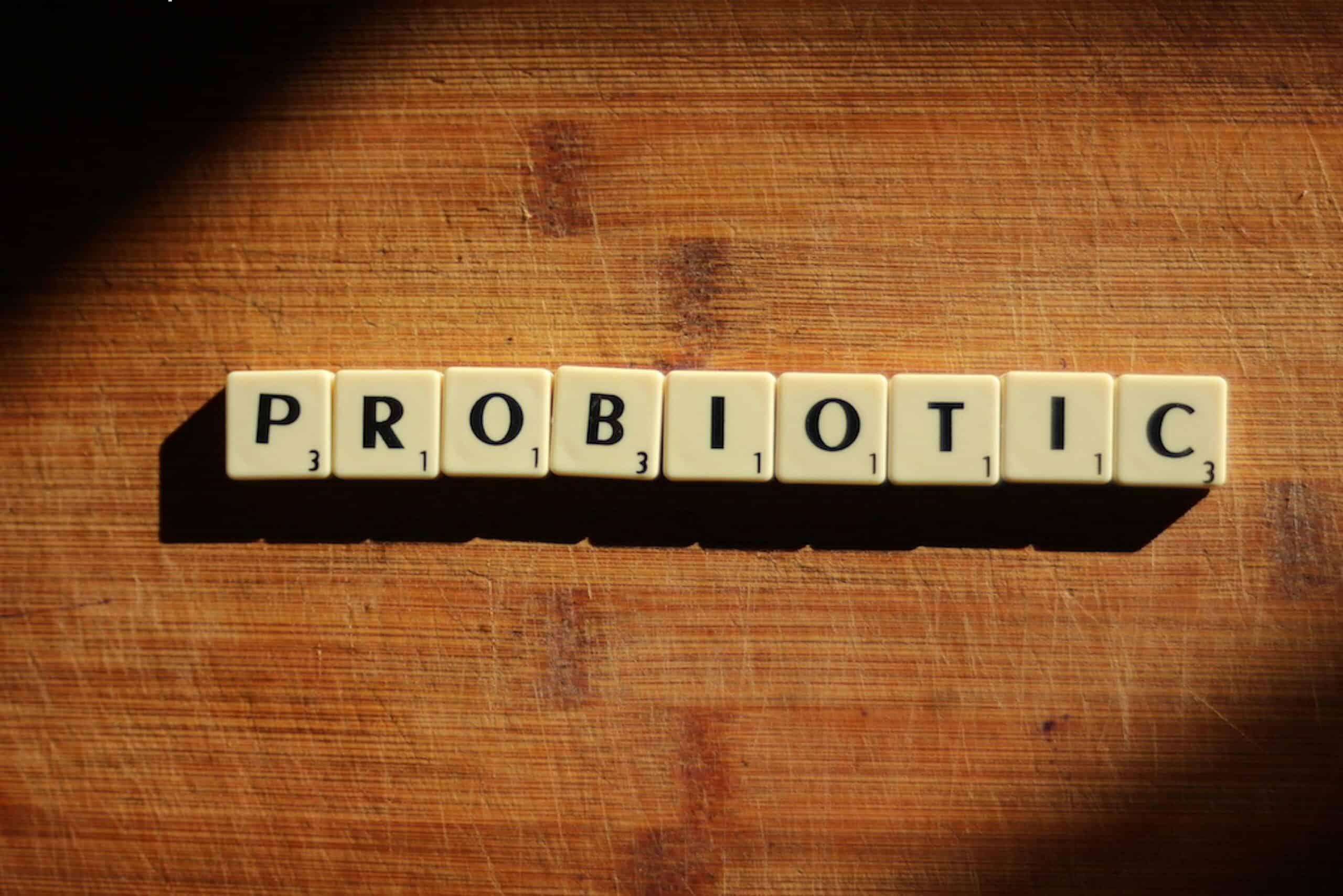
Gut health plays a vital role in nearly every aspect of our well-being, from digestion and nutrient absorption to immunity and even mental health. Yet, many people overlook the signs of an imbalanced gut, dismissing frequent bloating, fatigue, or skin breakouts as minor annoyances rather than indicators of a deeper issue.
I learned this firsthand when I struggled with persistent digestive discomfort and unpredictable energy levels despite eating what I thought was a healthy diet. It wasn’t until I started paying attention to my gut health—incorporating more fiber, probiotics, and eliminating processed foods—that I realized how much it impacted everything from my mood to my skin.
If you’ve been experiencing unexplained digestive issues, fatigue, or food sensitivities, your gut might be trying to tell you something.
In this guide, we’ll cover the key signs of bad gut health, the factors that contribute to an unhealthy gut, and evidence-backed strategies to restore balance through:
- Diet
- Simple lifestyle changes
- Supplements designed to improve digestion, like Live it Up Super Greens.
Whether you’re dealing with discomfort or simply want to optimize your well-being, taking care of your gut is one of the most effective ways to support your long-term health.
What is Gut Health?

Gut health refers to the balance and function of the microorganisms living in the digestive tract, collectively known as the gut microbiome. These microbes play a crucial role in breaking down food, absorbing nutrients, and supporting various bodily functions.
A well-functioning gut is essential for digestion, ensuring the body effectively processes food and eliminates waste. It also plays a key role in immune health, as a large portion of the body's immune system is housed in the gut.
Additionally, emerging research highlights the gut-brain connection, showing that gut health directly influences mood, cognition, and overall mental well-being.
When the microbiome is balanced, it can support:
- Energy levels
- Digestion
- Emotional stability
However, an imbalance in gut bacteria can lead to a range of issues, from digestive discomfort to weakened immunity and even mental health challenges.
Common Signs of Bad Gut Health

Your gut does more than just digest food—it plays a crucial role in regulating your immune system, mood, and overall health. When your gut microbiome is out of balance, it can manifest in ways that go beyond digestive discomfort.
Many people experience unhealthy gut symptoms like bloating, skin issues, fatigue, or even mood swings without realizing that poor gut health could be the root cause.
If you’ve been dealing with persistent digestive issues, unexplained weight changes, or food intolerances, your gut may be signaling that it needs support.
Below are some of the most common signs of poor gut health and what they might indicate.
Digestive Issues
Frequent bloating, gas, diarrhea, constipation, and acid reflux can signal gut microbiome imbalances. If you regularly experience discomfort after meals, it could indicate that your gut isn’t efficiently breaking down and absorbing nutrients.
Tip: A high-quality greens powder, like Live it Up Super Greens, provides prebiotics and digestive enzymes that support gut function and help ease digestive distress.
Unintentional Weight Changes
Sudden weight loss or gain without changes in diet or exercise may be linked to poor gut health. An imbalance in gut bacteria can lead to malabsorption of nutrients, altering metabolism and energy storage.
Sleep Disturbances and Fatigue
Your gut microbiome influences serotonin production, a key neurotransmitter for sleep regulation. Poor gut health can contribute to insomnia, restless sleep, and chronic fatigue, leaving you feeling drained even after a full night's rest.
Skin Irritations
Eczema, acne, and psoriasis are often linked to gut inflammation. When your microbiome is out of balance, toxins and undigested food particles can enter the bloodstream, triggering inflammatory skin reactions.
Food Intolerances
If you find yourself reacting poorly to certain foods—such as bloating after eating gluten or dairy—it may be due to gut dysbiosis. A weakened gut barrier can lead to increased food sensitivities and digestive discomfort.
Autoimmune Conditions
An unhealthy gut can trigger an overactive immune response, contributing to autoimmune disorders like rheumatoid arthritis, lupus, and Hashimoto’s thyroiditis. Restoring gut balance may help reduce inflammation and support immune regulation.
Mood Changes
The gut-brain connection is strong—imbalances in gut bacteria have been linked to anxiety, depression, and brain fog. Since the gut produces neurotransmitters like serotonin and dopamine, a compromised microbiome can directly impact mental well-being.
Learn about the nutrition-mental health connection and how veganism can improve mental well-being!
Potential Causes of Poor Gut Health

Gut health is influenced by a variety of factors, including diet, lifestyle, and overall well-being. While some digestive discomforts may seem random, they often stem from long-term habits that disrupt the delicate balance of gut bacteria.
Poor dietary choices, chronic stress, lack of sleep, and overuse of antibiotics can all contribute to gut imbalances, leading to digestive issues and other health concerns.
Understanding the root causes of poor gut health is the first step toward making lasting improvements.
Below, we explore some of the most common culprits behind an unhealthy gut and how they impact your overall well-being.
High Sugar and Processed Food Intake
A diet high in refined sugars and processed foods can feed harmful gut bacteria, leading to an imbalance in the microbiome.
Excess sugar also promotes inflammation, which can weaken the gut lining and contribute to digestive distress over time.
Chronic Stress
Prolonged stress doesn’t just affect mental health—it also disrupts digestion and gut function.
Stress can alter gut bacteria composition, slow digestion, and even increase inflammation, making it harder for the gut to function optimally.
Lack of Sleep
Poor sleep quality or irregular sleep patterns can negatively impact the gut microbiome, leading to imbalances that affect digestion and overall health.
Studies suggest that inadequate rest may reduce beneficial bacteria, making it harder for the body to regulate digestion and immune function.
Overuse of Antibiotics
While antibiotics are necessary for treating infections, overuse can wipe out both harmful and beneficial bacteria in the gut.
This disruption in microbial diversity can weaken digestion, immunity, and the body's ability to naturally restore gut health.
Sedentary Lifestyle
Regular movement supports digestion by promoting gut motility and increasing microbial diversity.
A lack of physical activity has been linked to a slower digestive system, increased bloating, and reduced gut bacterial diversity, all of which can contribute to poor gut health.
How to Improve and Restore Gut Health

Wondering how to improve gut health? If you're experiencing digestive issues, low energy, or unexplained food intolerances, your gut health may need some attention. The good news is that restoring your gut is possible with the right dietary and lifestyle changes.
By making small, intentional adjustments—such as eating more fiber-rich foods, incorporating probiotics, managing stress, and staying hydrated—you can rebalance your gut microbiome and improve overall well-being.
Below, we’ll outline practical steps to heal and strengthen your gut, including dietary recommendations, key supplements, and lifestyle habits that support long-term digestive health.
Dietary Changes
Improving gut health starts with a fiber-rich, plant-based diet that includes legumes, whole grains, fruits, and vegetables to support digestion and nourish beneficial gut bacteria.
Adding fermented foods like kimchi, sauerkraut, and miso can introduce probiotics, while limiting processed foods and added sugars helps prevent inflammation and bacterial imbalances.
If you’re struggling with your gut health, consider adopting a vegan diet. While going vegan can be challenging, it is proven to boost gut health by improving digestion with its nutrient-rich foods.
Probiotics, Prebiotics, and Other Supplements
In addition to a gut-friendly diet, supplements like probiotics, prebiotics, and digestive enzymes can provide extra support in restoring and maintaining gut health.
Probiotics introduce beneficial bacteria that aid digestion, while prebiotics—found in foods like garlic, onions, and bananas—help feed and sustain them.
Digestive enzymes can also be helpful for breaking down food more efficiently, reducing bloating and discomfort.
Greens Powders Impact on Gut Health
Greens powders are an easy and effective way to support gut health, providing a blend of prebiotics, probiotics, fiber, and essential nutrients that promote digestion and microbiome balance.
Among the most popular options, Live it Up Super Greens and AG1 both offer gut-friendly ingredients, but their formulations differ significantly.
While AG1 is a well-known greens powder, popular amongst athletes, Live it Up is uniquely formulated with gut health in mind. It contains organic vegetables, fiber-rich greens, and a carefully selected probiotic blend to aid digestion and support a thriving microbiome.
Of course, there are many greens powders on the market today, so be sure to do some research to determine which one fits best with your lifestyle and goals.
Stress Management
Chronic stress can negatively impact gut health by disrupting the balance of beneficial bacteria and increasing inflammation in the digestive tract.
Incorporating relaxation techniques like meditation, yoga, deep-breathing exercises, or mindfulness practices can help regulate stress levels and promote a healthier gut microbiome.
Regular Physical Activity
Exercise plays a crucial role in gut health by stimulating digestion, enhancing gut motility, and supporting the diversity of gut bacteria.
Activities like walking, strength training, and yoga can improve circulation and reduce bloating, making movement an essential part of any gut health reset.
Adequate Sleep
A well-rested body supports a thriving gut microbiome, while poor sleep can contribute to digestive issues and increased gut inflammation.
Establishing a consistent sleep routine, limiting screen time before bed, and ensuring a dark, cool sleeping environment can help regulate circadian rhythms and improve overall gut function.
Hydration
Water is essential for breaking down food, absorbing nutrients, and maintaining a balanced gut microbiome.
Drinking plenty of fluids throughout the day—especially water and herbal teas—helps flush toxins, prevent constipation, and keep digestion running smoothly.
Natural Foods for Gut Healing

A well-balanced diet rich in gut-friendly foods and targeted supplements can significantly improve digestive health, promote a diverse microbiome, and support overall well-being.
Incorporating a variety of plant-based, fiber-rich, and fermented foods helps nourish beneficial gut bacteria, while certain supplements provide additional digestive support.
Gut-Healing Foods to Include in Your Diet
Adding these foods to your daily meals can help restore gut balance, improve digestion, and reduce inflammation.
| Food Category | Examples | Gut Health Benefit |
|---|---|---|
| Fermented Foods | - Kimchi - Sauerkraut - Miso - Dairy-free yogurt - Kombucha | Provide probiotics that enhance microbial diversity |
| Prebiotic-Rich Foods | - Garlic - Onions - Asparagus - Bananas - Oats | Fuel healthy gut bacteria and support a balanced microbiome |
| High-Fiber Fruits & Vegetables | - Berries - Apples - Artichokes - Leafy Greens | Help regulate digestion and support gut bacteria |
| Legumes & Whole Grains | - Lentils - Chickpeas - Quinoa - Brown Rice | Help regulate digestion and support gut bacteria |
| Nuts & Seeds | - Flaxseeds - Chia Seeds - Walnuts | Provide omega-3s and fiber to reduce inflammation and aid gut function |
When to Seek Professional Help for Healing Your Gut

While dietary and lifestyle changes can improve gut health for many people, there are times when professional guidance is necessary.
If persistent, poor gut health symptoms interfere with your daily life or worsen despite your efforts, consulting a healthcare provider can help identify underlying issues and appropriate treatments.
Signs It’s Time to See a Doctor
Consider seeking medical advice if you experience:
- Chronic Digestive Issues: Persistent bloating, diarrhea, constipation, or abdominal pain that doesn’t improve with dietary changes.
- Severe Food Intolerances: Frequent discomfort after eating, even with gut-friendly foods.
- Unexplained Weight Changes: Significant weight loss or gain unrelated to diet or exercise.
- Ongoing Fatigue or Brain Fog: Low energy levels and difficulty concentrating despite a nutrient-rich diet.
- Skin Conditions That Don’t Improve: Persistent acne, eczema, or rashes linked to inflammation.
- Autoimmune flare-ups: If you have an existing autoimmune condition and notice worsening symptoms.
Medical Interventions and Treatments
If symptoms indicate a deeper issue, a healthcare provider may recommend:
- Comprehensive Testing: Stool tests, blood work, or food sensitivity assessments to identify infections, imbalances, or intolerances.
- Targeted Probiotics or Medications: Prescription-based treatments for bacterial overgrowth, infections, or digestive disorders.
- Dietary Adjustments: A nutritionist may recommend specific elimination diets or modifications for gut healing.
- Gut-Healing Therapies: Depending on the diagnosis, treatments like FODMAP diets, gut-directed therapy, or specialized supplements may be suggested.
Taking a proactive approach to gut health can help prevent long-term issues, but if symptoms persist, a medical professional can provide personalized care to restore balance and well-being.
Takeaway
Your gut health plays a vital role in your digestion, immunity, mental clarity, and overall well-being. If you've been experiencing persistent bloating, fatigue, skin issues, or digestive discomfort, it could be a sign that your gut microbiome needs attention.
Fortunately, restoring gut health is possible through dietary adjustments, lifestyle changes, and targeted supplements.
By incorporating fiber-rich foods, fermented probiotics, proper hydration, and stress management techniques, you can support your digestive system and maintain a thriving gut microbiome.
Start Your Gut Health Journey Today
Taking small steps now can lead to significant improvements in how you feel every day. Whether you're making simple diet swaps, prioritizing sleep, or adding a high-quality greens powder to your routine, every change counts.
The V Nutrition Editorial Team, consisting of experts in vegan nutrition and health, focuses on providing accurate and helpful information. With backgrounds in nutrition science and a shared commitment to plant-based living, we ensure that every piece of content not only educates but also empowers our readers to make informed lifestyle choices.
The V Nutrition Editorial Team, consisting of experts in vegan nutrition and health, focuses on providing accurate and helpful information. With backgrounds in nutrition science and a shared commitment to plant-based living, we ensure that every piece of content not only educates but also empowers our readers to make informed lifestyle choices.




Comments
No Comments